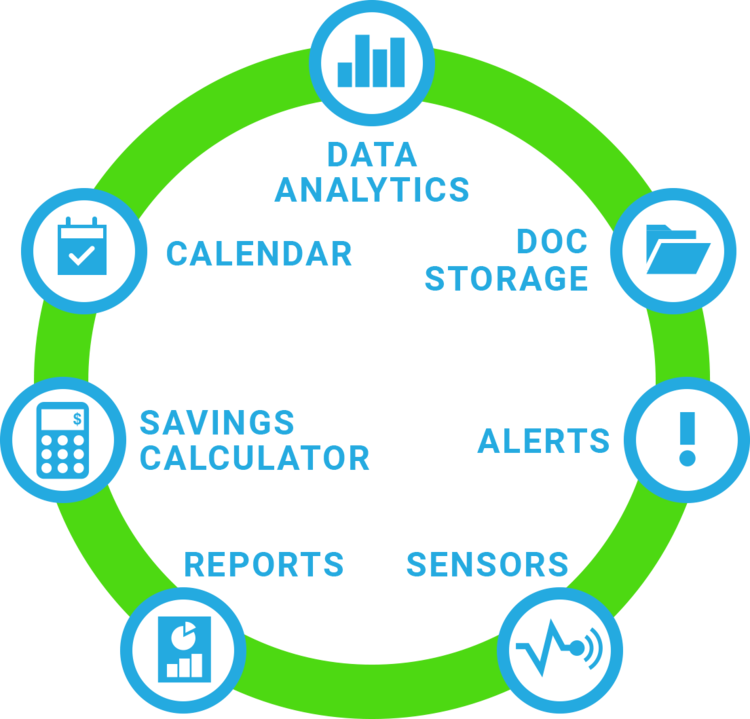6 Downstream Benefits of a Climate-Resilient Water System
Climate change poses significant challenges to water management systems worldwide. As extreme weather occurrences become more frequent and unpredictable, the need for climate-resilient water management is increasingly apparent. Let’s explore the critical importance and benefits of climate resilience in water management for facilities.
Exigency of climate resilience and regulatory changes to expect
Climate change is affecting businesses and their stakeholders, altering precipitation patterns and exacerbating frequent and severe droughts. The strain on water resources is too costly to ignore.
The impacts of climate change pose significant challenges to operations: disrupting supply chains, increasing costs, and introducing new uncertainties into long-term business outlooks. This is especially relevant for businesses reliant on water for production and service. Globally, 43% of firms cite water security and scarcity among risk factors in regulatory filings, highlighting how adaptive measures to address these climate-related risks are no longer optional with regard to business health.
Amid rising threats to water security, governments are moving to implement new regulations, ushering in a new era of environmental standards for water management. These new regulations will be strict, emphasizing resilience in water management practices, such as mandatory on-site reclamation systems. The goal is to create a framework that addresses the immediate impact of climate change and establishes a foundation for long-term environmental sustainability.
Benefits of climate-resilient water management
Investing in climate resilience now offers immediate and long-term business advantages. Let’s explore a few worth celebrating.
Market differentiation and benchmarking
With climate-resilient water management in place, businesses gain a competitive lead over competitors who have not prioritized sustainable practices. This commitment attracts investors who recognize responsible resource management as an indicator of long-term business viability. With environment, social, and governance (ESG) investing on the rise, businesses moving to set new standards for climate resilience have considerable edge.
Cost efficiency
Climate-resilient operations involve effective water-monitoring processes and systems that identify and rectify inefficiencies promptly, enhancing overall efficiency and reducing operational costs. Climate-resilient water management also reduces the risk of damages to capital assets associated with water shortages.
Operational advantage
Climate resilience is business resilience. Implementing standards and systems for resource conservation early can minimize the operational disruptions and downtime often required when implementing new processes on the fly. This is especially true for industries heavily dependent on water. Integrating climate resilient practices and measures before they’re necessary translates to a tremendous operational advantage over competitors when new regulations emerge in the future.
Flexibility and adaptability
Climate-resilient water management is characterized by anticipating resource concerns and making measured adjustments to address them. This incremental approach offers flexibility and agility amid uncertainties. When environmental conditions are as dynamic as they are impactful, the more dexterity businesses develop for addressing resource scarcity, the farther they get ahead of industry curves.
Stakeholder relations
Businesses that actively embrace climate-resilient water management can unlock new market opportunities by reaching new stakeholders and strengthening current partnerships. A demonstrable commitment to sustainability often boosts morale and job satisfaction among employees, improving engagement, productivity, and innovation. Climate resilience also attracts positive media attention and public goodwill, elevating brand recognition and reinforcing customer loyalty.
Financial incentives
Movement toward climate resilience also qualifies businesses for financial incentives: tax breaks, subsidies, and preferential financing — all tangible returns for companies investing in water conservation. These incentives can offset initial costs and contribute to the overall financial gains of early implementation.
How Aquanomix technology enables climate resilience
Aquanomix stands at the forefront of climate-resilient water management, offering a comprehensive suite of capabilities that optimize water usage and enhance overall sustainability. Our water management systems leverage advanced sensors, data analytics, and automation — this integrated technology continuously monitors environmental conditions, water quality, and consumption patterns, providing businesses with real-time data to predict and respond to water issues proactively. With our software enabling water-usage optimization, businesses see an immediate and adaptable path toward climate resilience.
Stay ahead with Aquanomix
As businesses begin to grapple with limitations to water supply and regulatory changes, the time to adapt is now. Climate-resilient water systems are a smart place to start.
Demonstrate business responsibility and boost business health in one move. Visit Aquanomix today to learn how our technology and solutions can help confront climate change and strengthen your business.




